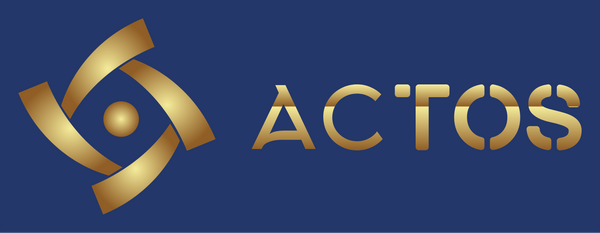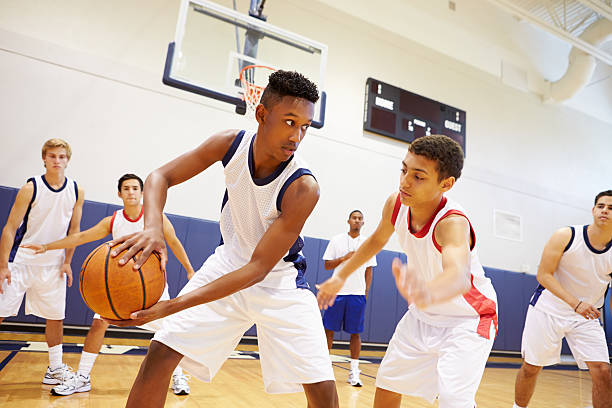The single most effective concept for continuous improvement and performance.
From the moment you wake up, you're bombarded with outside influences trying to tell you how to train. It's not just social media; it's everything. You have coaches with different ideas, teammates showing you their workouts, family giving their opinions, and the constant flow of information online. There are tons of tutorials, TikTok's, and YouTube videos showing the latest training trends, but they often give conflicting advice, which just makes things more confusing. It can be really tough to figure out what's best for you.
How do you protect your mind from this constant barrage of information and take control of your training? How do you decide what will get you the results you want? I get it—we live in the information age, with so many choices it can be overwhelming to decide what, which, when, where, and how to choose (or not choose) a program, food, action, etc. But there's an answer: focus on doing the most effective things right to achieve results.
Sounds simple enough and outright common sensical. It's in the name, right? However, it seems that we manage to overlook this concept and fall prey to overwhelm and the ongoing flood of information, misinformation, direction, redirection and all the new shiny objects out there for us. Let's start by clarifying this concept.
Efficiency vs. Effectiveness
Efficiency is defined as the ability to do things "right". "Right" can be a relative term. For example, having an electric vehicle for a long-distance trip would be considerably efficient (1). However, using the same vehicle to tow a half-ton cargo would not be. By comparison, effectiveness is defined as the ability to do the "right" things. Often, this is without association to any one deadline. Once again, this term is subjective and relative. Would you prefer to be able to bake that cake the right way and within a reasonable amount of time or is time not important? How can we balance doing the "right things" with doing "things right" during training particularly as it relates to sports performance? This is where mastering effective efficiency becomes essential. Let's dive in!
Effective Efficiency
This training concept is simple: focus on the activities that give you the biggest, fastest gains, so you improve quickly. It's about streamlining your path to success. Developing motor skills in sports takes tons of practice—hundreds, even thousands of hours—and everyone learns at their own pace (2). We see this pattern everywhere. Repeated actions become habits. Repeated thoughts become ingrained memories. Repeated muscle movements become reflexes. Think about learning to drive. At first, everything needed intense concentration—signals, gas, clutch, wipers—it was exhausting. But with practice, it became automatic.
I remember watching Shaq in his prime. The '90s and early 2000s—he was a force of nature. "Shaq" just dominated the NBA. His sheer size and power made him unstoppable around the basket. It was almost unfair. But then opposing teams came up with this strategy: "Hack-a-Shaq." They’d intentionally foul him, sending him to the free-throw line. It was a gamble, but it made sense. Shaq, despite being a legend, wasn't the best free-throw shooter. Instead of letting him score easily under the basket, they forced him to earn his points at the line, where he was much less likely to score (3).
It always struck me as odd. Here was Shaq, a professional athlete, a future Hall of Famer. He had access to the best coaches, the best training facilities. He was constantly working on his technique. Yet, I remember seeing an interview where Shaq himself admitted that his free-throw struggles weren't physical. He could nail them in practice, no problem. But something changed when the game started, when all those eyes were on him, the pressure of the moment. It was mental. It’s fascinating how even the best can struggle with that mental aspect of performance. I often wonder how many more points he would have scored during his career if he had been able to overcome that mental block.
Then, you have Michael Jordan. Early in his career, people said he was a weak three-point shooter. But instead of accepting that label, he dedicated himself to improving. He focused on his technique, put in the work, and the result? An NBA Finals record. It’s a testament to the power of focused improvement, the idea that you can overcome weaknesses with hard work and dedication. Two different stories, two different approaches, but both incredibly impactful.
Do the hard work first
The myth says, "work hard," but the true path whispers, "do the hard work first." This isn't about endless toil; it's about strategic action. Simply piling on more—more sprints, longer runs, brutal workouts, endless games—won't magically forge a champion. More isn't always better; better is always better. Just mindlessly putting in hours on the field won't guarantee a victorious transformation.
My own journey, as a parent of two sons—a college decathlete and a high school soccer player—has revealed a profound truth: the key lies in finding the "small tweaks" that unlock the greatest impact. This is the true hard work. Our youngest son used to spend endless hours in the backyard practicing his soccer skills; shooting at the goal, ladders, cones, one on one versus his older brother. Yet, despite all his hours of practice both with his team coaches and at home, he always felt his ball control was still less than ideal. Upon further observation, we decided to not use a regular size soccer ball during his home practices. Instead, we switched to one mini size, replica style ball which makes ball control exceedingly difficult.
From there on all the sessions were solely focused on controlling this tiny soccer sphere in tight spaces and conduct all his drill using this ball and only this ball. It was not until a certain number of attempts were successfully completed with this ball that he was able to move up and use his regular ball. The result was his selection to the local team as one of the co-captains. Shortly after, one of the higher-level coaches noted his improved skill level and decided to promote him up to the highest-level team within his age group and shortly after, earned a spot as part of the starting squad, thanks in part to his physicality and ball handling skills.
How do you know you're on the right track? Your body and mind will let you know. You need to stay observant, and you'll start to recognize what's holding you back. Pushing past your limits is uncomfortable; it challenges everything you thought you were capable of. This journey won't be easy; expect resistance. You'll hear that inner voice (and maybe even some external ones) telling you you're not "good enough" at this new way of doing things. That's normal. But remember, progress comes from consistency and repetition. Learning new skills takes time, so be patient. As your brain forms new connections and these skills become ingrained, you'll start to understand. You'll begin to see the results of your hard work, not just the work itself. From then on, you'll work to maintain that new level of ability and performance. And then the cycle starts again. This is the transformation; this is the reward.
Closing Thoughts
The concept of effective efficiency—while often discussed and primarily associated with physical performance—isn't limited to an athlete's physical struggles. As you can see, this concept applies just as powerfully to an athlete's mindset, and this mindset directly impacts their desired performance. Doing the "right things right" might require finding out what those "small tweaks “are; what is the simple most important change that might be necessary to either your mindset, training, or nutrition that will have the most significant impact to be able to level up your performance. The conceptual application of this method is for us to do the hard work first as we continue to work, not only to achieve our personal goals but help others achieve their own goals along the way.
Always remember to focus on the process and not the outcome for everlasting enjoyment and continuous results. If you want to learn more, check out my friend Brian LeFeve's blog about unlocking athletic peak performance (4). So, to improve performance quickly, focusing on effective efficiency—doing the right things right— might be the way to go. Remember: more is not always better, better is always better.
Once again, feel free to send us your comments or any other ideas or concerns you may have. Here is to your success! Until next time.
"Our potential is not reached by running away from things. It's reached by facing them, by grappling with them; especially the difficult ones."-Ryan Holiday
Like us on Facebook and Instagram. Become part of the ACTOS community and visit myactos.com for further tips and resources.
Gaspar
ACTOS Performance Innovation
Dr. Gaspar A. Rosario is a seasoned healthcare expert with a Doctorate in Health Sciences and over a decade of clinical experience. His certifications in Weight Management, Performance Enhancement, and Exercise Therapy from the ISSA, coupled with his diverse medical background, position him as a trusted authority in the field.
References
- https://medium.com/product-management-aspects/efficiency-vs-effectiveness-the-hilarious-truth-in-our-fast-paced-world-77d01e85261d
- Thomas D. Fahey, EdD, Sports Performance Enhancement, 4th edition, 2019, Published by the International Sports Sciences Association, Carpinteria, CA 93013
- https://clutchpoints.com/nba-news-shaquille-oneal-gets-100-honest-free-throw-struggles-in-career
- Elite Mind Body Optimization, https://www.elitembo.com/home


 I experienced this firsthand as a novice Ironman athlete in the "Clydesdale" category (180lbs+). Ironman races have a swim, bike, and run, each with time limits. Biking and running were fine, but swimming was tough. My body type wasn't ideal for buoyancy, creating drag and fatigue, which slowed me down (that is me in the picture). As in other sports, fatigue in swimming hurts your technique, and bad technique really hurts your swim time. We could've simply focused on pushing harder on my interval splits during training to improve my time performance as well as doing mindless amounts of laps in the pool to improve my stamina and speed.
I experienced this firsthand as a novice Ironman athlete in the "Clydesdale" category (180lbs+). Ironman races have a swim, bike, and run, each with time limits. Biking and running were fine, but swimming was tough. My body type wasn't ideal for buoyancy, creating drag and fatigue, which slowed me down (that is me in the picture). As in other sports, fatigue in swimming hurts your technique, and bad technique really hurts your swim time. We could've simply focused on pushing harder on my interval splits during training to improve my time performance as well as doing mindless amounts of laps in the pool to improve my stamina and speed.